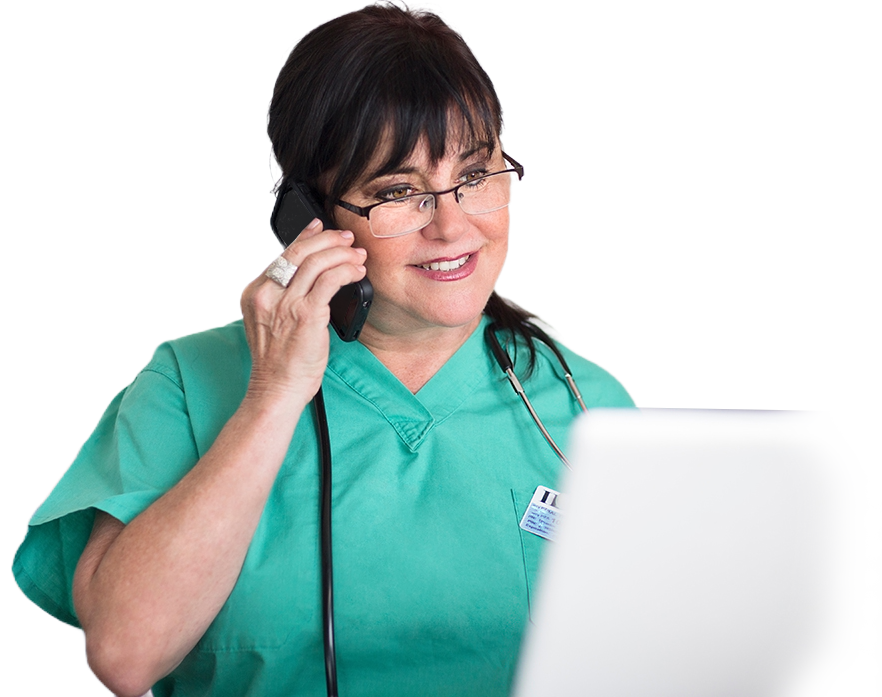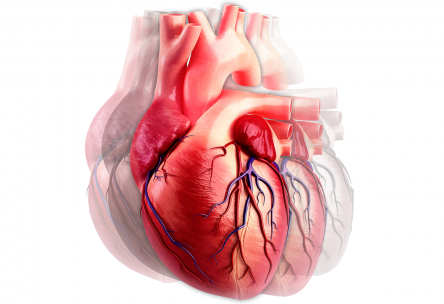Your heart is one of the most important parts of your body. It pumps blood to all your organs and keeps you alive and active. But just like any other part of your body, your heart needs special care to stay healthy. Here’s a guide to some common heart problems. Plus, how to take care of your heart and what to do if something feels off.
Common heart problems for older adults
High blood pressure (BP). This happens when the force of your blood pushing against the walls of your arteries is too strong. It can make your heart work harder than it needs to. It’s like blowing up a balloon with too much air — it can stretch and damage the balloon.
Heart disease. This can mean many different problems like blocked arteries (when fat and cholesterol build up and block blood flow), an irregular heartbeat and heart attacks.
High cholesterol. Cholesterol is a fat that can build up in your arteries and block blood flow. Think of it like a pipe getting clogged — if it gets too full, blood can’t pass through easily, which can hurt your heart.
Thanks for your feedback!
The results of our 2024 Aetna Medicare Advantage member newsletter survey are in. You told us which topics are most important to you, and which Aetna and health care topics and benefits you want to learn more about. Visit aet.na/feb25-4 to read the results.
Heart health screenings to consider
Just like you go to the dentist to check on your teeth, you need to go to your provider to check on your heart. Your provider can make sure your heart is healthy by running tests like a:
- Blood pressure check, which measures how hard your blood is pushing in your arteries
- Cholesterol test, which checks how much cholesterol is in your blood
- Electrocardiogram (EKG or ECG), diagnostic test that monitors your heart's electrical activity
Getting these screenings regularly is important because they can catch problems early before they turn into bigger issues. To learn more about your coverage for these screenings, log in to your secure member website to see your plan documents.
Important heart health medicines
Sometimes, if your heart isn’t as healthy as it should be, your provider might prescribe medicine to help. It’s really important to take your medicine exactly as your instructions tell you to. Here are two common types of medicines that help keep your heart healthy.
Statins (for high cholesterol)
These are medicines that help lower the amount of cholesterol in your blood. This can help stop your arteries from getting clogged.
Renin-angiotensin system (RAS) antagonists (for high blood pressure)
This medicine helps control your blood pressure by relaxing your blood vessels. This makes it easier for blood to flow.
Need a nurse?
Call our 24/7 Nurse Line* at
1-855-493-7019 (TTY: 711) to speak with a registered nurse, 24 hours a day, 7 days a week. If it’s an emergency, dial 911.
*While only your doctor can diagnose, prescribe or give medical advice, the 24-Hour Nurse Line can provide information on a variety of health topics.
Symptoms related to heart health
Sometimes, your heart might give you signs that something isn’t right. It’s important to listen to your body and know where to go for help. If you have any of these symptoms, call 911 or go to the emergency room:
- Chest pain
- Trouble breathing
- Fainting or sudden dizziness
Heart health tips
Taking care of your heart can be easy if you follow some simple steps.
The best ways to get a better BP reading*
Taking your blood pressure at home just got easier with these helpful tips to get a more accurate reading:
- Empty your bladder. A full bladder can increase your BP by 10mmHG (mmHG means millimeters of mercury, which is a unit of pressure).
- Put the cuff on a bare arm. A cuff used over clothing can increase your BP by 5–50mmHG.
- Use the correct cuff size. A cuff that’s too small can increase your BP by 2–10mmHG. Your provider can check your cuff size for you.
- Support your back and feet. An unsupported back and feet can increase your BP by 6mmHG.
- Keep your legs uncrossed. Crossing your legs can increase your BP by 2–8mmHG.
- Support your arm at heart level. If the arm is unsupported or hanging down, the reading will be too high. It can artificially increase your BP by 6 to 10mm Hg.
- Keep quiet. Talking or active listening can increase your BP by 10mmHG.
- Try again. If your BP is elevated (whether at your provider’s office or at home), take another reading after 1 to 3 minutes of rest.
- Keep a BP log. Share your latest readings with your provider at all visits, including telehealth.
*7 simple tips to get an accurate blood pressure reading. American Heart Association. Accessed February 9, 2026.
See Evidence of Coverage for a complete description of plan benefits, exclusions, limitations and conditions of coverage. Plan features and availability may vary by service area. Participating health care providers are independent contractors and are neither agents nor employees of Aetna. The availability of any particular provider cannot be guaranteed, and provider network composition is subject to change. The formulary and/or pharmacy network may change at any time. Other Providers are available in our network. For mail-order, you can get prescription drugs shipped to your home through the network mail-order delivery program. Typically, mail-order drugs arrive within 10 days. You can call 1-833-570-6670 (TTY: 711) if you do not receive your mail-order drugs within this timeframe. Members may have the option to sign-up for automated mail-order delivery. This material is for informational purposes only and is not medical advice. Health information programs provide general health information and are not a substitute for diagnosis or treatment by a physician or other health care professional. Contact a health care professional with any questions or concerns about specific health care needs. Providers are independent contractors and are not agents of Aetna. Provider participation may change without notice. Aetna is not a provider of health care services and, therefore, cannot guarantee any results or outcomes. The availability of any particular provider cannot be guaranteed and is subject to change. Information is believed to be accurate as of the production date; however, it is subject to change. For more information about Aetna plans, refer to our website. You will receive notice when necessary. SilverSneakers® is a registered trademark of Tivity Health, Inc. ©2025 Tivity Health, Inc.
©2025 Aetna Inc.
Y0001_NR_4146955_2025_C
3940009-01-01




